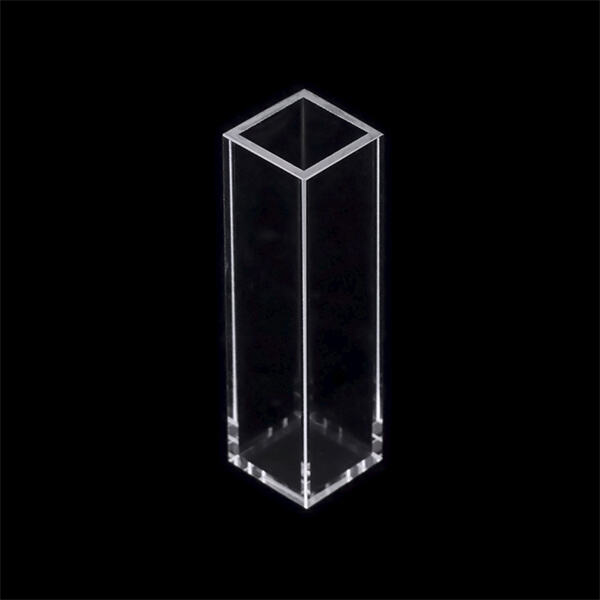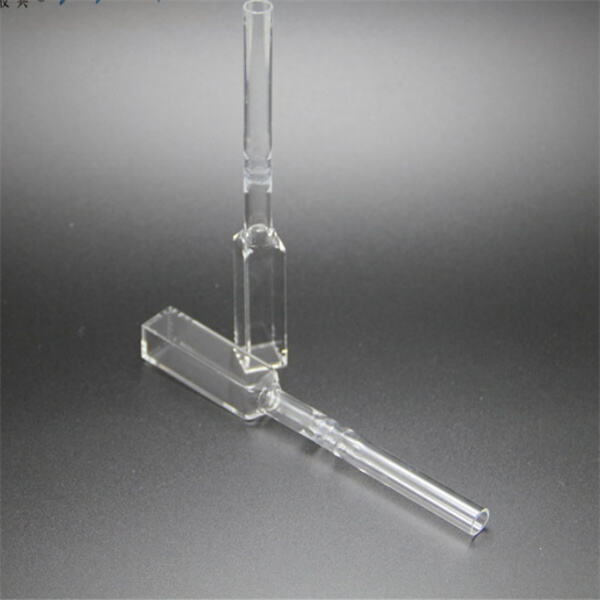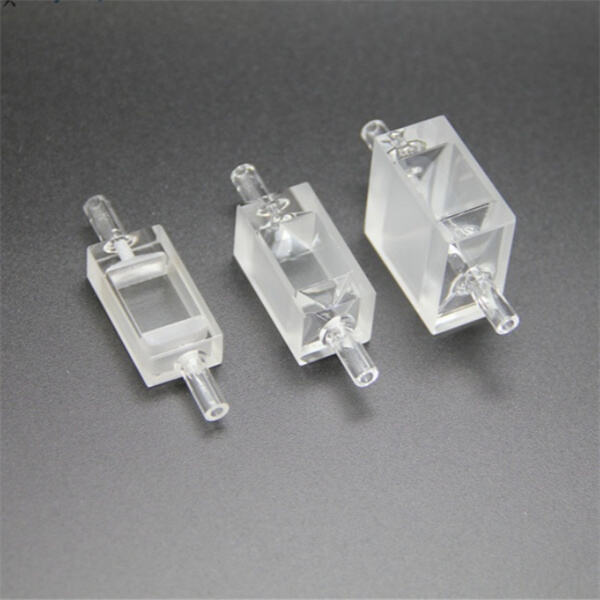This article will explain what cuvette quartz cells are and their significance in various fields such as science, medicine, and light measurement. Experiments use Quartz cells a lot, and we will discuss how they differ. Jinke Optical can also explain how these specialty cells can be utilized in your research studies
A quartz cell is a small container that mathematicians use to hold fluids they wish to deposit. So this box is made of a special kind of crystal called quartz, super clear with very poor light scattering. To study these liquids, scientists use something called spectroscopy. The procedure that helps them determine the composition of a sample using a specific light information is called spectroscopy. That is, how the light interacts with the liquid contained within the quartz cell, imparting significant knowledge to researchers.
A quartz cell operates by allowing light to pass through the liquid contained within it. As the light travels through the liquid, it bumps into super small particles called molecules. Some of the light is absorbed — the molecules take it in — while some of it is scattered, meaning it bounces off the molecules in different directions. By measuring how the light is altered after passing through the liquid, scientists can figure out what’s inside the sample and how much is there. This adds great convenience in many scientific experiments
Quartz cells are extremely significant due to their superior properties that make them a suitable choice for the experiments. They are transparent, and most types of light pass through them with ease, including ultraviolet light and infrared light. They also don’t separate the light into its various components, which allows scientists to acquire clear readings when they are collecting data.

Along with being transparent, 1mm quartz cuvette cells are also sturdy and can withstand various types of chemicals and temperature. That means they are able to be used for all sorts of experiments without shattering or interacting with the liquid within it. They’re also simple to clean, so scientists can reuse them many times over without fear of contamination.

The thickness of the quartz cuvette uv spectrophotometer cell must be appropriate for the type of light measurement being used for scientists to get accurate results. When using different spectroscopy methods, the quartz cell size changes. If the cell is too thick, or too thin, it will draw inaccurate conclusions about what is in the specimen.

Medical research requires high-quality quartz cells to prevent errors in measurements. Any variation in quartz cell size can result in large errors in determining the amount of a given sample. The implication for scientists is that in order to get reliable results, the quartz cells must be manufactured with great precision.
Jinko Optics can provide fully customized solutions for the specific needs of different industries and customers. Whether it is drawings and samples provided by customers or personalized needs for special application scenarios, Jinko Optics can accurately design and produce optical components that meet the requirements. This flexible customization capability is particularly suitable for the precise needs of scientific research institutions, laboratories and specific industries. In addition, the company's rapid response to market changes and customer needs can ensure that customers always get the latest and most suitable technical support and products.
As the drafting unit of the national standard for cuvettes, Jinko Optics has very high standards for product quality. Every cuvette and optical component produced by the company follows the ISO9001:2016 standard, strictly controls every link in the production process, from the selection of raw materials to the factory inspection of finished products, to ensure that every product meets high quality requirements. In addition, it has 6 invention patents and 16 utility model patents, reflecting the company's continued investment in technological innovation and process optimization, so that the products not only have excellent performance, but also have unique market competitiveness.
Jinko Optics is committed to providing customers with high-quality products with high cost performance. By optimizing production processes and management processes and reducing production costs, the company can provide more favorable prices while ensuring the excellent performance of products in quality and function. In addition to the excellent quality of the products themselves, the company also pays special attention to after-sales service, providing timely technical support and professional solutions to ensure that problems encountered by customers during use are quickly resolved. This customer-oriented service concept enables Jinko Optics to stand out in the fiercely competitive market and win the trust and praise of a wide range of customers.
With more than 50 years of R&D and manufacturing experience, Jinko Optics has accumulated rich technical and practical knowledge in the field of spectral accessories. For a long time, focusing on the research and development of core products such as cuvettes, flow cells, optical components, and vapor cells has not only improved the company's technical position in the industry, but also enabled the company to quickly respond to various complex application requirements. The accumulation over the years has helped the company to continue to innovate and always be at the forefront of the industry.